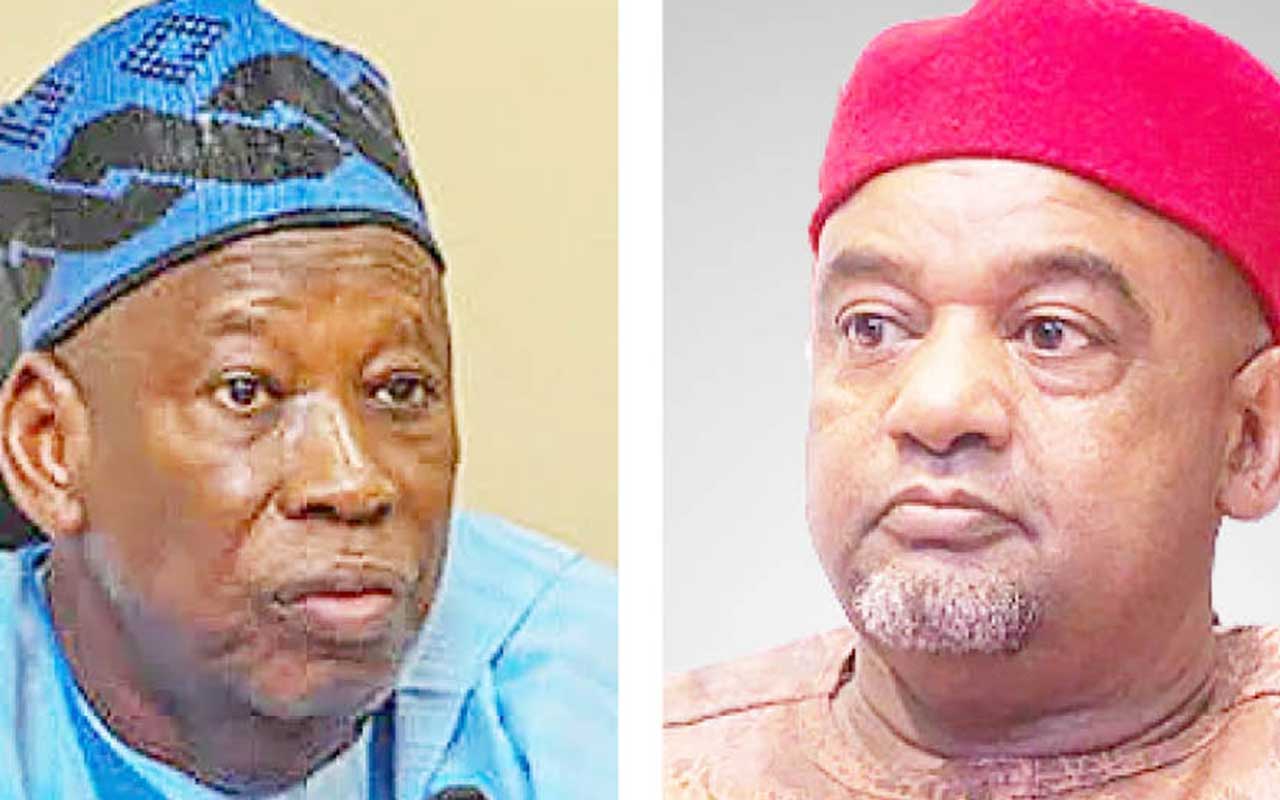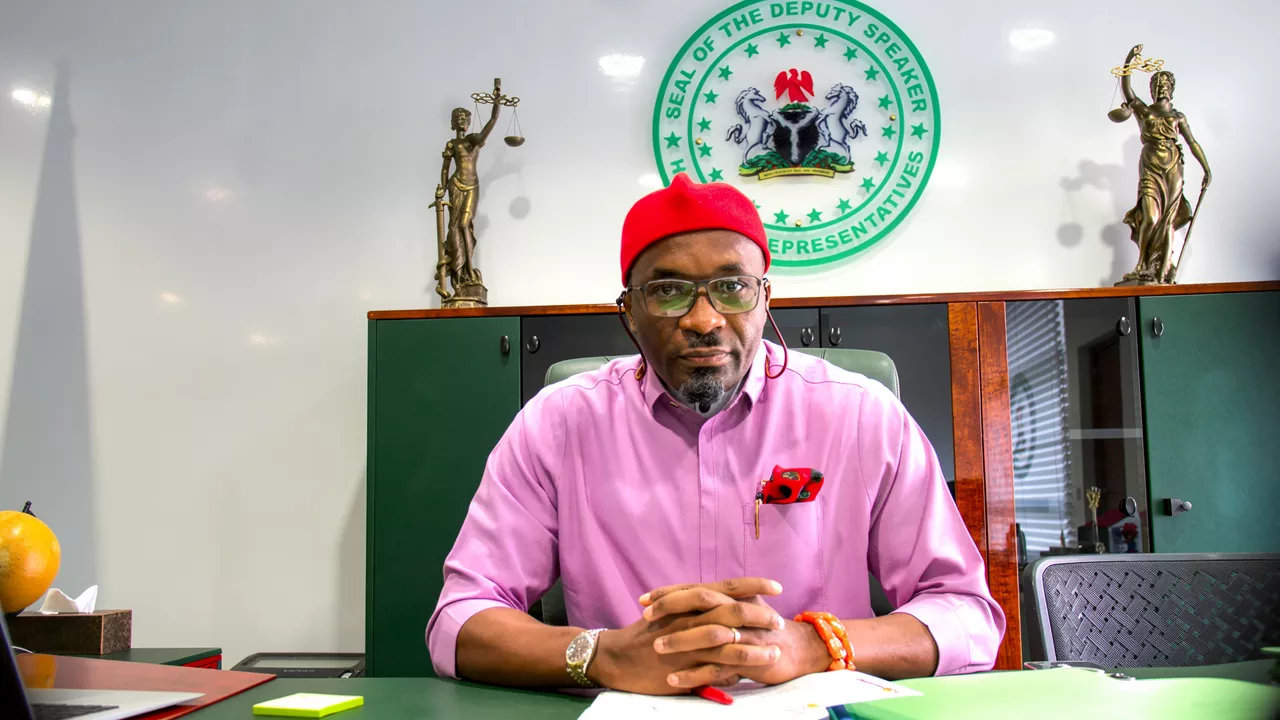
In emerging democracies, political parties are relying on membership registration fees, monthly dues and other constitutionally specified means for funding.
However, The Guardian investigation revealed that membership contributions are no longer mandatory unlike during the first and second republics. The shift has weakened political parties as essential institution to advance democracy and explains why few wealthy politicians have hijacked the soul and decision making process of the parties for their selfish interest.
For instance, in the first republic, members of Action Group (AG) and Northern People’s Congress (NPC) regularly paid monthly dues to support their parties.
Former General Secretary of the Yoruba Council of Elders Dr Kunle Olajide, told The Guardian that, “As a member of Action Group (AG) student wing at the University College now University of Ibadan (UI) in 1964, we used to pay around two pounds per session,” while Professor John Ayoade also from the UI said, “I saw my father, Pa Simeon Ayoade’s, party card. He used to pay one Shilling per month in the 1950s.”
Also, the two leading parties in the United States, the Democratic Party and the Republican Party, contesting for the next month presidential election rely heavily on membership contributions to finance their activities.
But in a clear departure from what obtains in other democracies and Nigeria before independence and first republic where parties rely on membership dues for finances, only aspirants, elected officers and political appointees shoulder the expenses of the party and party executives who sought funds from “political investors” to pay for the party secretariat and pick other sundry bills.
This also explains why big parties sell their presidential nomination forms as high as N100 million and N50 million for governorship.
While the constitution of all parties emphasises funding through membership dues, donations, and other legitimate sources, the reality on the ground tells a different story. Rather, parties have become increasingly reliant on donations from contractors, aspirants and political office holders.
The 1999 Constitution confers an oversight responsibility on the Independent National Electoral Commission (INEC) “to monitor the operations of the political parties, including their finances.”
The Electoral Act 2022 provides more comprehensive regulations on political party funding. Section 87 empowers INEC to determine donation limits for political parties and candidates, and demand information on the amount and source of such donations.
Section 88(8) sets a cap of N50 million on individual or entity donations to candidates, preventing undue influence and promoting a level playing field.
Specifically, article 22 of APC constitution outlined that the party “shall derive funds from subscription fees, and levies on members, proceeds from investments, subventions, donations, and fund raising, gifts and grants by governments, individuals or groups of individuals as allowed by law, borrowing as approved by the National Executive Committee (NEC) and any other lawful means.”

Chapter nine of PDP constitution stated that, “There shall be established and maintained for the party a fund into which shall be paid all: subscription, fees, and levies from membership of the party, proceeds from investments made by the party, subventions and donations, gifts and grants by individuals or groups of individuals as authorised by law, loans approved by the National Executive Committee (NEC); and (such other monies as may be lawfully received by the party.”
While article 26 of the Labour Party (LP) also posited that funds of the party shall be derived from mainly monthly dues at the rate of N100.00 per member or as the NEC of the party may decide from time to time.
Both APC and PDP also expect their members to pay at least N200 per month as membership dues.
Though reliable data on the cost of election campaign and party financing is not available because big parties have refused to declare their financial records as stipulated by the Electoral Act, investigation however, revealed that All Progressives Congress (APC) and Peoples Democratic Party (PDP) are losing billions of Naira to lackadaisical attitude of their members to payment of dues .
If claims of the number of membership declared by the big parties are true, they are expected to generate enough funds to pick their bills.
Ahead of 2019 general elections, PDP had disclosed through its former National Publicity Secretary, Kola Ologbondiyan, that the party had over 40 million members on its register while APC’s ex-Secretary of the Caretaker/Extra-Ordinary National Convention Planning Committee, Senator John Akpanudoedehe had in 2021 also claimed the party has over 40 million members on its register.
Although there are doubts about membership figures being claimed by these parties because none of them ever had up to 20 million votes in any election since 1999. With their unverified claims of 40 million members each, their annual membership dues should amount to N48 billion yearly.
But APC’s Director of Publicity, Bala Ibrahim told The Guardian that he has no information on whether members of the party are paying their annual dues or not. Also, National Publicity Secretary of the party, Felix Morka, declined comment on the matter as he ended the phone call when asked to confirm the claim that the party has 40 million members and how regular they pay their dues.
National Secretary of New Nigeria Peoples Party (NNPP) Dipo Olayoku, said members of the party are required to pay a monthly dues of N100, which he said was not mandatory.
But the Acting National Publicity Secretary of the Peoples Redemption Party (PRP) Muhammed Ishaq, said the party collects a monthly dues of N100 from its members. He disclosed that based on the party’s constitution, defaulters are not eligible to contest or hold any party position or elective position under the platform of the party.
Findings from members of the major political parties who spoke to The Guardian also revealed non-payment of dues, thereby making the parties to rely on donations from few wealthy individuals.
Labour Party (LP) member, Chuks Abraham, who resides in Utako, Federal Capital Territory (FCT), Abuja is of the opinion that funding of political parties should not be the responsibility of members, especially at the grassroots.
To him, parties should focus on other means of generating revenues. “As a proud member LP, I don’t pay membership dues because I think our party leaders should prioritise grassroots empowerment over collecting dues. We need to focus on rebuilding our party from the grassroots, not burdening members with unnecessary financial obligations”, he told The Guardian.
Also, a registered member of Peoples Democratic Party (PDP), in Arkilla ward, Wamakko Local Government Area, Sokoto, Abubakar Garba, disclosed that he has never paid party dues.
Recall that in 2014, PDP declared that it received N21.7 billion in donations from individuals and corporate bodies at a fund raising ceremony while APC in 2019 received N1.6 billion during a dinner to raise money for the election.
Since a large chunk of funds for political parties usually come from wealthy individuals and godfathers, members of the party often lose moral rights to demand accountability from those that have been identified as “owners of the party.”
Prior to the 2023 general elections, most candidates who emerged during primaries, including governorship, were ‘selected’ by godfathers with deep pockets.
Acting national chairman of the National Rescue Movement (NRM), Chinedu Obi, emphasised the importance of members paying annual dues to fund political parties in order to promote stakeholder engagement. According to him, the current practice of relying on few wealthy individuals to fund party activities undermines the democratic process and concentrates decision-making power in the hands of a few individuals.
He said: “Party members are supposed to pay dues first. They start by registering as a member, where they pay a registration fee. Then, they pay yearly or monthly dues, as the case may be, which is typically paid at registration points. Unfortunately, very few people make this payment, it’s usually the aspirants that pay their dues.”
National Publicity Secretary of LP, Obiora Ifoh, said it has been challenging for the party to get people to pay membership dues even as he said he could not give exact figure of registered members of the party. Every member is expected to pay N100 monthly dues.
On his part, national chairman of Inter Party Advisory Council (IPAC), Yusuf Dantalle, advocated for grants to fund political parties in Nigeria.
Dantalle, who is also the national chairman of Allied Peoples Movement (APM), argued that the current funding system is ineffective, and parties rely heavily on members holding executive positions, especially at the state level to fund their activities.
Noting that political parties are public institutions and should be funded accordingly, he suggested that INEC should provide grants to political parties, even if not in cash, but through sponsoring some of their activities. This, he believes, will enable parties to carry out their salient activities and exercises, which are currently hindered by lack of funds.
He said: “Payment of party membership dues is not effective in Nigeria. As long as you are not in power and people are not expecting anything like appointments from you, it is difficult for them to comply and there is no funding measure except for pioneer members of the party, who are holding executive positions, especially at a state level, outside that, people actually don’t pay.”
Executive Director, Civil Society Legislative Advocacy Centre (CISLAC), Auwal Rafsanjani, said there is a need for robust reforms in Nigeria’s political party system to address the issues of godfatherism and hijacking of parties by a few individuals for their selfish interests.
According to Rafsanjani: “If party members don’t pay their dues, it hands over control to few individuals, undermining effective participation and affecting parties independent.”
He said the country requires a serious political party system reform so that parties can provide a shadow government, take on policy issues, and demand accountability from the government.
The CISLAC boss stressed that members of political parties must provide financial contributions to the party so that it will be independent and not overrun by moneybags.






